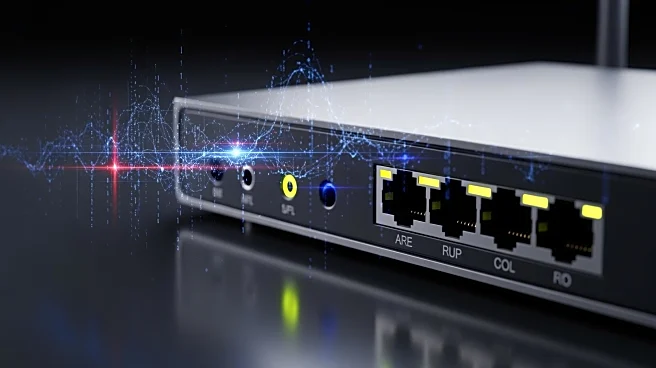What's Happening?
The Federal Communications Commission (FCC) is preparing to vote on whether to rescind cybersecurity regulations implemented during the Biden administration. These rules were established in response to a significant
breach of U.S. telecommunications infrastructure by a Chinese cyberespionage campaign known as Salt Typhoon. Commissioner Anna Gomez has expressed concern that removing these regulations would allow telecom companies to avoid accountability for cybersecurity lapses. The rules were designed to create clear cybersecurity obligations and enforceable frameworks to protect networks from future breaches. Despite mixed signals from U.S. officials about the current status of Salt Typhoon, Gomez insists that the threat remains ongoing and requires a robust response.
Why It's Important?
The potential rescission of these cybersecurity rules could have significant implications for U.S. telecommunications security. If the FCC decides to remove these regulations, it may weaken the accountability mechanisms for telecom providers, potentially leaving critical infrastructure vulnerable to future cyberattacks. The decision also reflects broader debates about the role of regulatory agencies in enforcing cybersecurity standards versus relying on industry-led initiatives. The outcome of this vote could influence how the U.S. government approaches cybersecurity policy and its relationship with telecom providers, impacting national security and the protection of sensitive communications.
What's Next?
If the FCC votes to rescind the regulations, it may lead to increased scrutiny from cybersecurity advocates and policymakers who favor stronger regulatory oversight. The decision could prompt further discussions on how to balance industry collaboration with regulatory enforcement to ensure robust cybersecurity measures. Additionally, the FCC's engagement with telecom providers and other federal agencies may continue to evolve, potentially leading to new strategies for addressing cybersecurity threats. Stakeholders will likely monitor the situation closely to assess the impact on U.S. telecommunications security and the effectiveness of alternative approaches.










